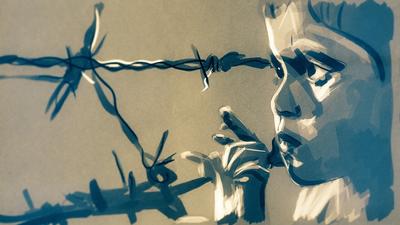Rohingya voices
“I was afraid because there is a belief in our community that if you have COVID-19 you will die.”
Jobaida, 25, is with her newborn son, Mohammed Ibrahim, in the MSF Goyalmara hospital. He is 22 days old. She lives in a refugee camp in Cox’s Bazar with her husband and three other children. Her husband used to work as a daily worker for an international organisation, but has had no job for seven months.
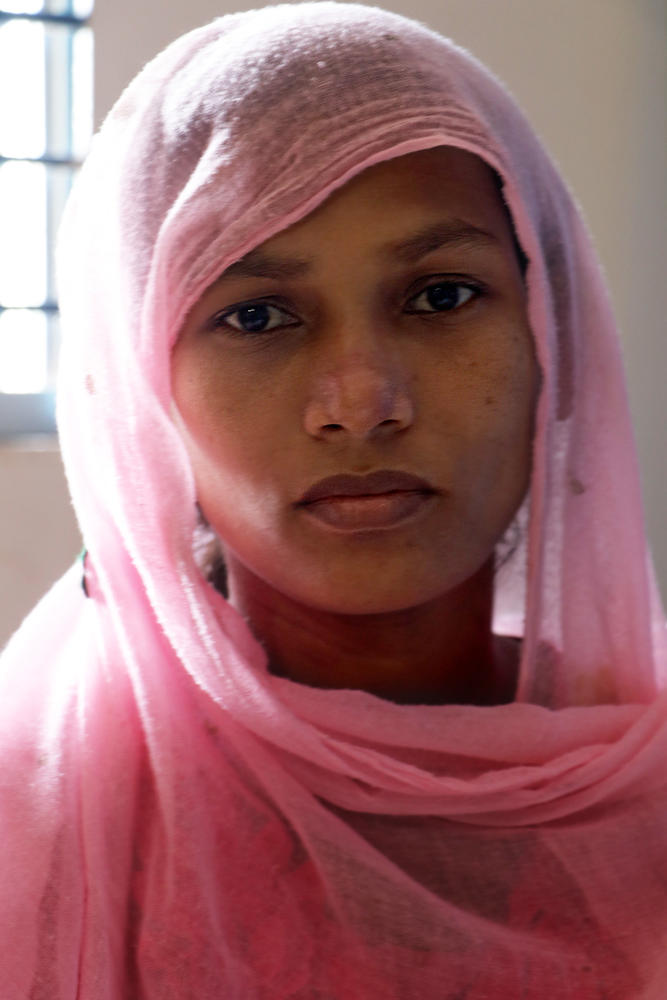
About three weeks ago, I delivered my baby at Balukhali clinic. The baby wasn't crying; he didn't open his eyes or move. The doctors said that there was something wrong and sent us to the Goyalmara Mother and Child hospital.
I spent six days in the neo-natal intensive care unit. During that time the medical teams began to think that my baby and I might have COVID-19, so they tested us. The test came back positive and I was moved to the isolation ward with my baby. I spent 12 days there.
I was afraid because there is a belief in our community that if you have COVID-19 you will die. The doctors and nurses were really kind; they supported me and checked on me every day. They didn't seem afraid to get close to me, even though I was infectious, which helped me feel less stigmatised. I was lucky because I didn't experience any symptoms. I was completely well the whole time.
My baby is not yet strong enough to be discharged, but I hope he will be soon because I have other children at home that I need to look after. I am worried about staying here because… who will take care of them while I'm away?
I fled Myanmar in 2017 on foot with my husband and my first child, who was one year old at the time. Three people in my family were killed around this time; they were shot or stabbed. So we decided to take what belongings we could carry and leave with our neighbours.
I have never seen so many people all walking together like that, it was incredible, it was such a crowd. It took us 12 days to reach Bangladesh, walking all the way through the forest. We had taken only a little food with us. After we ran out of the food, we didn’t eat for the rest of the journey.
When we reached the Naf river we had to wait for three days before we could find a way to cross. In the end we paid some locals that had small row boats to take us across the river that way.
God willing, if everything goes well, I will go back to Myanmar. My husband is at home in the camp with two of the other children. I wonder when I will be able to return to Myanmar. It’s still my country. I don’t know much about this place [Bangladesh], like I do my own country.
“My biggest worry is for my child… I want him to have a future.”
Sualeha Mohamed Ayubiu, 25, is with her 10 day old son, who doesn’t have a name yet. She used to live in Manupara, Bhushidong city, Myanmar. She lives now in a refugee camp in Bangladesh.
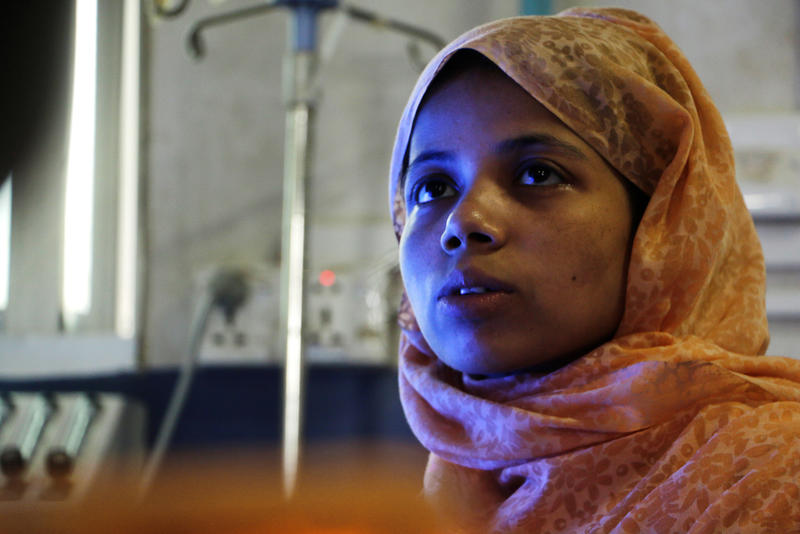
I am a housewife, so I cook and look after our shelter. I am happy with my family. I got married three years ago and had a baby two years later. But my water broke early and the child was stillborn. I still feel bad for that child, sometimes I cry.
I was seriously ill for almost a month after that birth; I was so tired I could barely even turn over. I missed my child very much, and I decided try to get pregnant again and was successful.
However, after seven months of pregnancy I started to have the same symptoms again. I had back pain and started to have contractions and gave birth at 3pm. At first, I felt okay, but doctors kept me here because the baby was small. At around 10pm he stopped breathing and turned blue.
The doctors helped me and my baby is getting better now. My baby is now breathing in three ways. Sometimes rapid breathing, sometimes shallow breathing and sometimes it’s hard to tell if he’s breathing at all. After I told a doctor, he checked and said the baby is okay. The doctor sat beside my baby for a long time.
For the last 10 nights I have slept badly; I'm so worried about my child. The doctors always give me hope and tell me it is going to be okay, but I am so afraid for him. My biggest worry is for my child. I want to be able to look after him and I want an education for him; I want him to have a future. Maybe if he has an education, he can become a doctor to help other people. You know, if I was educated I wouldn't need a translator to talk to you, I could speak directly in English!
“I am ready to go to Myanmar, so long our rights are guaranteed.”
Abu Siddik is from Rakhine state in Myanmar. He now lives in a refugee camp in Cox’s Bazar with his two daughters, three sons and his wife. He is in the MSF Kutupalong hospital with his five-year-old son Rashid Ullah.
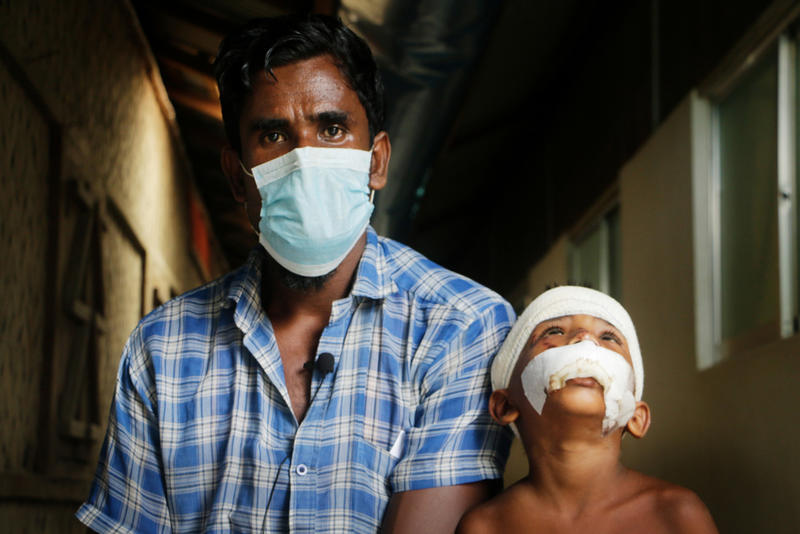
The other day, Rashid was playing near the road and was hit by a CNG [a local taxi]. He had some injuries to the back of his head, his lip was split and he had dislocated his shoulder. We took him first to Goyalmara Mother and Child hospital because it was closest to our house, but they sent him to Kutupalong because he needed some special treatment for his lip that he could only get here.
We used to live by the coast in Myanmar; I had my own business and land. I had a house; I was a shrimp farmer. We had more space and autonomy there. Here everything is so crowded, there is not enough space. It is hard for the kids because they like to go out and play.
In Myanmar, there were open spaces, but here they play on the roads and it can be dangerous. We also don't have any financial independence; all we can do is to receive aid. We can't even go to the local market. It has been worse since COVID-19, there are so many restrictions on our movement now that we have to break the rules just to survive.
Spending our lives in the camp is difficult. The space we have is small and our shelters are made of plastic. There is no space for the children to play. We get food distributions, which are okay, but it is not our usual food, it is not what we would usually eat. We also need fish, vegetables, some variety.
I left Myanmar because my house was burned down. They were killing and torturing everyone and harassing our women; it was not safe. The journey to Bangladesh took three days. It was difficult because the road was not safe.
My wife and I had to carry our two youngest children the whole way because they were not old enough to walk. Eventually we crossed the Naf river and arrived in Bangladesh. The locals provided us with food and water; they were very kind and we were relieved.
I am ready to go back home to Myanmar, so long as our rights are guaranteed, and there is justice and safety. At least in Myanmar there was for the possibility of an education for our children. We could get nice clothes and live in our own homes.
MSF staff voices
“Some patients arrive late… it is very complicated for us to repair that situation.”
Ferdyoli Porcel is a paediatrician from Peru. She worked in Bangladesh for six months.
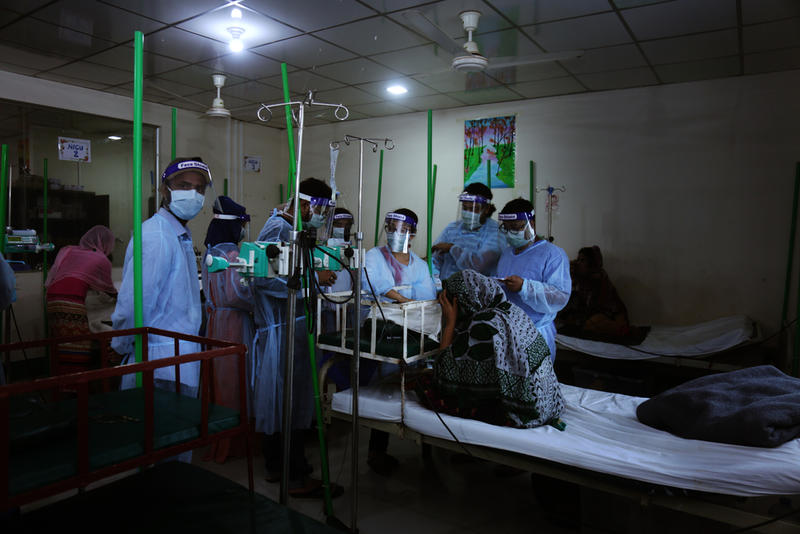
Many Rohingya refugees are not accustomed to a normal health system, as they were not able to go to hospitals in Myanmar. We have to do a lot of health promotion to convince them that this is a safe place to be treated.
Some patients arrive late, when they are already seriously ill. When a patient does not come quickly, when their condition is already complicated and the disease is already damaging other organs in their body, it takes a lot of work and it is very complicated for us to repair that situation.
Another problem is antenatal care and deliveries at home, when women have complications during homebirths or their babies are born with complications. A delivery at a hospital can help them avoid these complications and gives us the opportunity to help the baby breathe if it is born with problems or help the mother if she is losing blood.
Too many Rohingya are made to live in one room, without the proper conditions, which means our patients, especially the little ones, are more exposed to many kinds of infections.
“These major illnesses among the Rohingya refugees are mostly related to their poor living conditions.”
Tarikul Islam is a medical doctor from Bangladesh. Currently he works as medical team leader at Balukhali hospital.
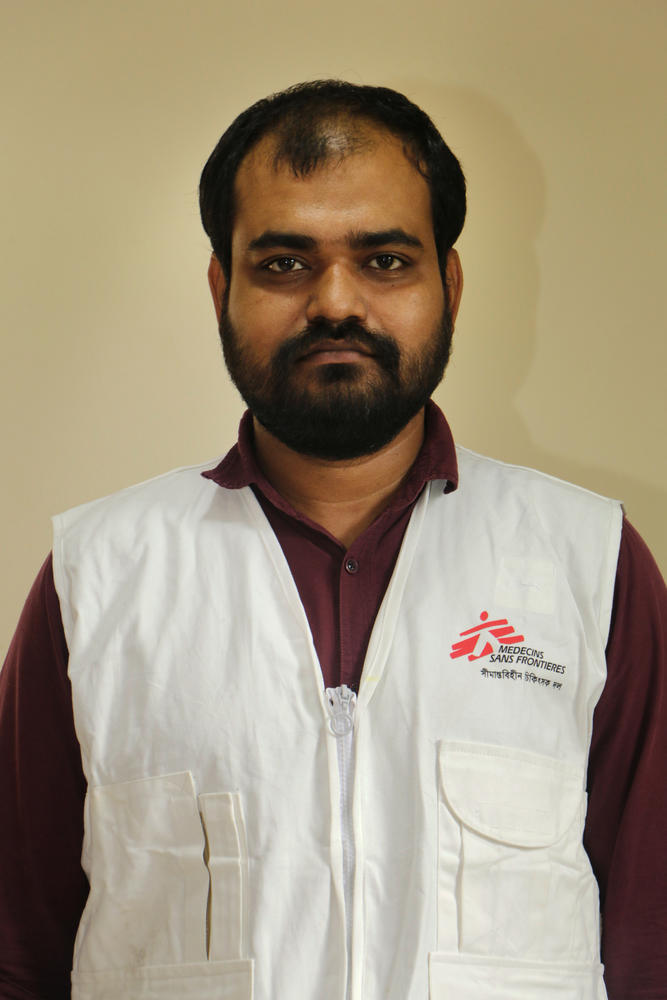
Before the influx of refugees in 2017, we would see on average 150 to 180 patients a day, but within a month we started to see 500 to 600 patients. That was huge, so we scaled up our medical activity.
In our hospitals and clinics, the majority of patients we see, both children and adults, have respiratory infections, diarrheal diseases or skin infections. There are also a significant number of them suffering from various levels of psychiatric illnesses. These major illnesses among the Rohingya refugees are mostly related to their poor living conditions.
It became complicated with the arrival of COVID-19. One of the issues is stigma and fear about COVID-19. Also our refugee patients are afraid of going to the health centre because of stigmatisation from the community. We have even seen some patients not openly disclosing COVID-19 related symptoms because they thought they would be treated differently after that.
Another challenge, at the beginning of the pandemic especially, was that many healthcare providers scaled down their activities because of reduced staffing, restricted movements and many other things.
“The challenges… became huge in terms of human resources, supply and transport.”
Teshome Tadesse, from Ethiopia, was a logistics coordinator for the MSF Bangladesh mission.
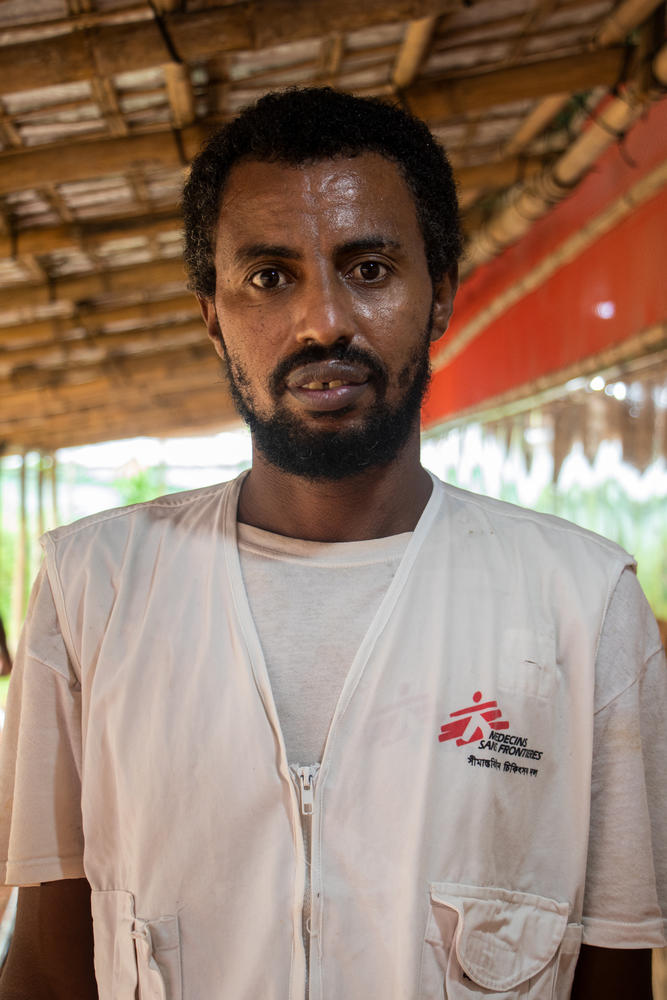
As soon as we had our first COVID-19 patient in Bangladesh, the challenges started and they very quickly became huge in terms of human resources, supply and transport.
Our suppliers didn’t have enough materials because all NGOs had needs and everyone was trying to buy the same things at the same time. Nor was it easy to deal with them because they refused to take cash while the opening hours in the banks were reduced in the big towns and in the small towns the banks mostly stopped working.
We faced difficulties bringing experienced international staff in to join the emergency response and also to moving staff from one place to another. A transport lockdown was enacted and we had staff commuting three to four hours daily to reach work. We had to hire a fleet of buses to transport them.
Read more on our international website:



